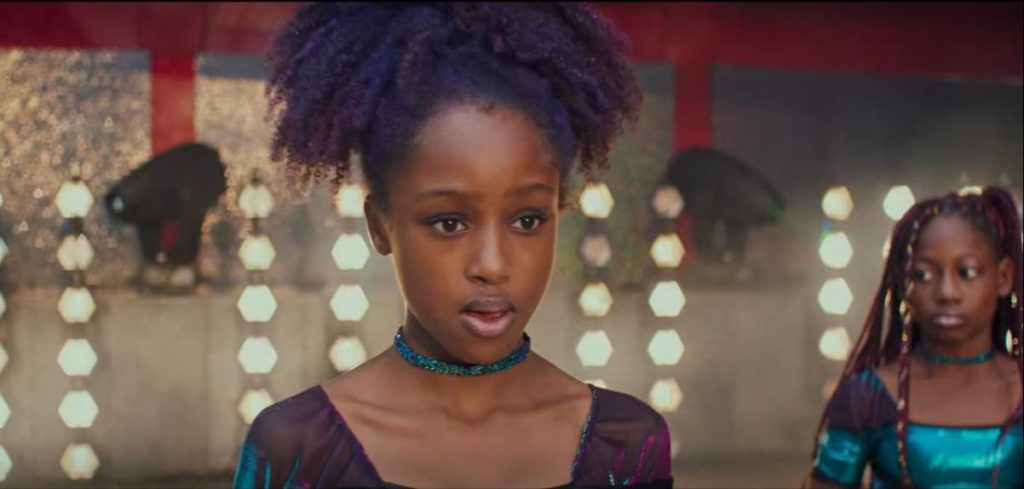 A French-made film available on Netflix that is said to be a dramatized “commentary” about how social media and societal role models wrongly influence young girls to sexualize themselves is generating outrage, including from Congress, as its content counteracts its purpose by utilizing 11-year-old female actors who “perform dances simulating sexual conduct in revealing clothing.”
A French-made film available on Netflix that is said to be a dramatized “commentary” about how social media and societal role models wrongly influence young girls to sexualize themselves is generating outrage, including from Congress, as its content counteracts its purpose by utilizing 11-year-old female actors who “perform dances simulating sexual conduct in revealing clothing.”
“I urge the Department of Justice to investigate the production and distribution of this film to determine whether Netflix, its executives, or the individuals involved in the filming and production of ‘Cuties’ violated any federal laws against the production and distribution of child pornography,” wrote Sen. Ted Cruz, R-Texas, to Attorney General William Barr on Friday.
According to reports, the movie was directed by Maïmouna Doucouré and seeks to address the negative influence sensual role models and social media have on pre-adolescent females by telling the story of an 11-year-old Senegalese Muslim immigrant, named Amy, who joins a girls dance troupe in Paris in rebellion against her mother.
She also finds herself dressing more provocatively and posting various pictures of herself online to gain attention and approval.
The scantily-clad girls engage in various sexually-charged dance moves — all clearly captured on camera and in the face of the viewer — while practicing and performing for a competition. Amy later tearfully realizes the wrong of her pursuits and returns to the arms of her mother.
“The film routinely fetishes and sexualizes these pre-adolescent girls as they perform dances simulating sexual conduct in revealing clothing, including at least one scene with partial child nudity,” Cruz wrote. “The scenes in and of themselves are harmful.”
Netflix has defended the movie, stating that it encourages others to watch the production because of its message.
“‘Cuties’ is a social commentary against the sexualization of young children,” it said in a statement. “It’s an award-winning film and a powerful story about the pressure young girls face on social media and from society more generally growing up — and we’d encourage anyone who cares about these important issues to watch the movie.”
“[Amy] believes she can find freedom through that group of dancers [where there is a] hyper-sexualization, but is that really true freedom, especially when you are a kid? Of course not,” Doucouré also explained in a video posted to the film page on Netflix.
She said that she interviewed a number of young girls before creating the film in seeking to understand how social media affects the way they think about themselves and their bodies.
“I needed to know how they felt about their own femininity in today’s society and how they dealt with their self-image in a time when social media is so important,” Doucouré outlined. “Our girls see that the more a girl is overly-sexualized on social media, the more she is successful. And children just imitate what they see trying to achieve the same result without understanding the meaning. And, yeah, it’s dangerous.”
“We are able to see oppression of women in other cultures, but my question is: isn’t the objectification of a woman’s body that we often see in our Western culture not another kind of oppression?” she asked.

But Cruz says the film could conversely encourage the abuse of children, and Sen. Josh Hawley, R-Mo., worries about the child actors who were used for the production and taught to engage in such acts for the camera.
“[I]t is likely that the filming of this movie created even more explicit and abusive scenes and that pedophiles across the world in the future will manipulate and initiate this film in abusive ways,” Cruz told Barr.
“Did Netflix, at any point, take measures to ensure the protection of the physical, mental and emotional health of child actors made to perform simulated sex acts and filmed in sexual or sexually suggestive ways?” Hawley wrote in a letter to Netflix CEO Reed Hastings.
“Why did your company choose to market this film — which touches on a range of issues, including religion, culture and social media — with a poster solely depicting scantily-clad preteens in sexually suggestive positions?” he asked.
The original marketing image in France had been of the girls walking with shopping bags through the street and confetti flying in the air. The Netflix version had showed the girls in more provocative poses as dancers.
Others who have spoken out against the film include Sen. Tom Cotton, R-Ark.; Rep. Jim Banks, R-Ind.; and Rep. Tulsi Gabbard, D-Hi.
Even the liberal site Vice, which found the film to be “a powerful story about the pressure young girls face on social media and from society,” acknowledged that at least some scenes in the film give cause for concern given the age of the actors, even if the underlying message is well-intentioned.
“There are some scenes that are intentionally provocative … and one in particular that feels unnecessarily eroticized,” it wrote. “The girls have established themselves as an urban dance troupe and spend an afternoon filming footage of themselves dancing to a song called ‘Bum Bum’ by well-known Nigerian artist Yemi Alade.”
“The montage features close-ups of their young bodies, skin-tight clothing and highly sexualized dance moves. This scene is designed to make viewers uneasy, but knowing that the actors themselves are very young is somewhat concerning,” the outlet said.
Online petitions for Netflix to pull the film have surpassed 1 million.
Become a Christian News Network Supporter...


